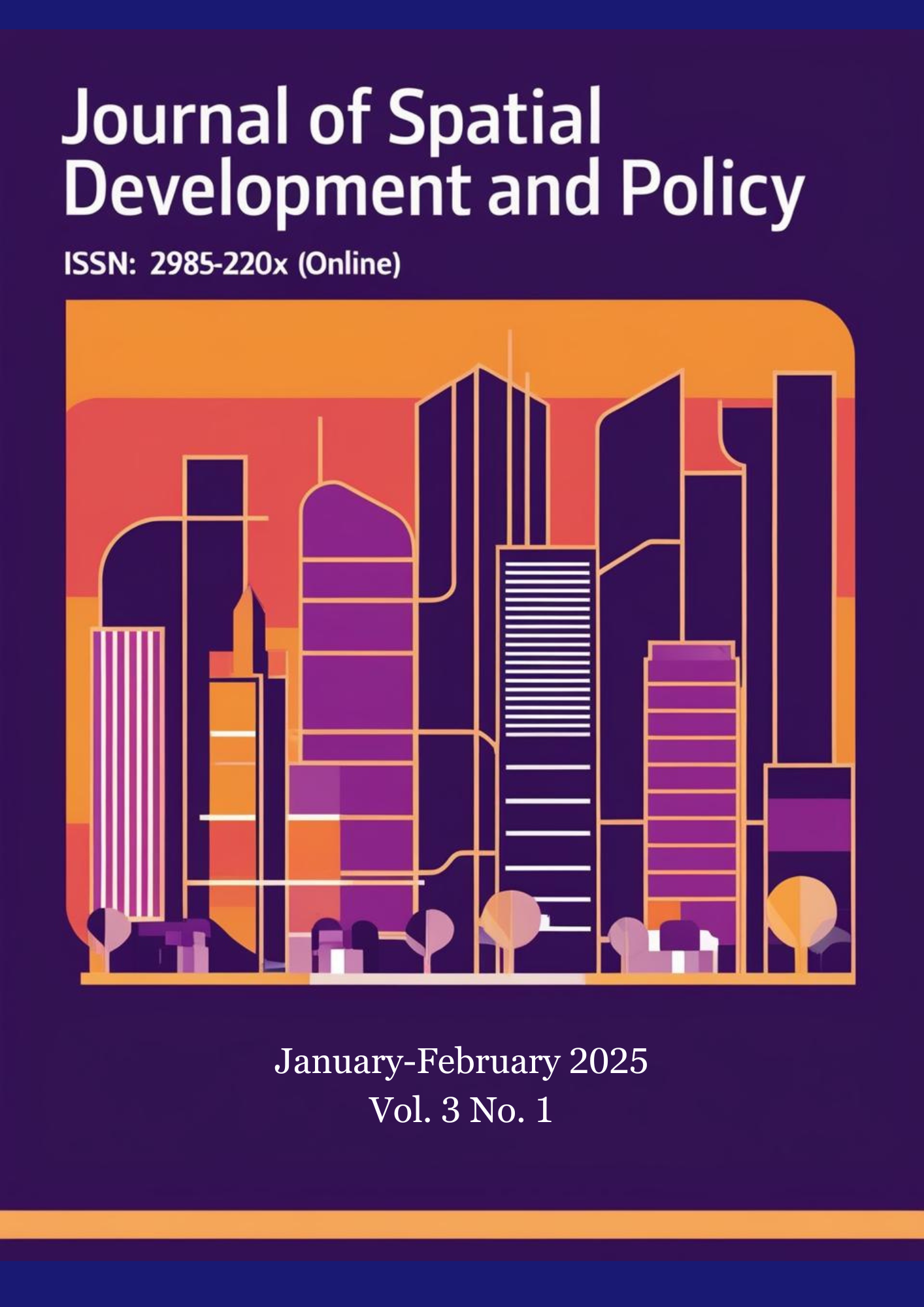The Characteristics that Influence by Determining to Be an Entrepreneur in a Startup Business of University Students at Burapha University, Chanthaburi Campus
Main Article Content
Abstract
The objectives of this research are as follows: (1) to study the entrepreneurial intention characteristics of startup businesses among students of Burapha University, Chanthaburi Campus, and (2) to examine the demographic factors influencing the entrepreneurial intention characteristics of startup businesses among these students, categorized by family occupation, academic year, and faculty of study. This study employs a quantitative research approach, collecting data from students in the Faculty of Science and Liberal Arts, Faculty of Marine Technology, and Faculty of Gems, with a total sample size of 295 participants. A questionnaire was used as the data collection tool, and the data were analyzed using descriptive statistics, including mean and standard deviation, as well as inferential statistics, specifically One-way ANOVA. The study found that: 1) Students exhibited a high level of agreement regarding entrepreneurial intention characteristics for startup businesses, with an average score of 3.79. Among the dimensions, entrepreneurial inspiration had the highest level of agreement, with an average score of 3.89, followed by learning motivation (3.84), self-confidence in potential (3.79), innovation capability (3.75), and risk-taking (3.71), respectively. 2) Demographic factors such as family occupation and academic year significantly influenced entrepreneurial intention characteristics at a statistically significant level. However, differences in the faculty of study did not result in significant differences in entrepreneurial intention characteristics.
Article Details

This work is licensed under a Creative Commons Attribution-NonCommercial-NoDerivatives 4.0 International License.
References
กรมประชาสัมพันธ์. (2566). โฆษกรัฐบาลเผยนายกฯ ส่งเสริมธุรกิจ Startup และ SME ผ่านการบูรณาการความร่วมมือจากหลายฝ่าย พร้อมเสริมสร้างองค์ความรู้และยกระดับศักยภาพผู้ประกอบการไทย. สืบค้นจาก https://www.prd.go.th/th/content/category/detail/id/39/iid/189535.
กองทะเบียนและประมวลผลการศึกษา มหาวิทยาลัยบูรพา. (2567). ระบบบริการการศึกษา. สืบค้นจาก https://reg.buu.ac.th/registrar/stat.asp?avs346537670=.
กิ่งแก้ว ทรัพย์พระวงศ์, ปรัศนีย์ เกศะบุตร และ ปิยวุฒิ ศิริมงคล. (2559). ภูมิหลัง ความสามารถในการสร้างสรรค์ และความสามารถในการเผชิญและฝ่าฟันอุปสรรคที่ส่งผลต่อความตั้งใจเป็นผู้ประกอบการของนักศึกษาระดับปริญญาตรี มหาวิทยาลัยกรุงเทพ. สุทธิปริทัศน์, 30(93), 86-99.
ขวัญกมล ดอนขวา, ปวงปณต สอบขุนทด, วาสนา ทองอยู่, สุไพรินทร์ แน่นอุดร และ แวววิไล เครื่องพาที. (2562). ทัศนคติที่มีผลต่อความตั้งใจในการประกอบธุรกิจ Startup ของนักศึกษาระดับอุดมศึกษาชั้นปีที่ 4 ในจังหวัดนครราชสีมา. วารสารวิชาการและวิจัย มหาวิทยาลัยภาคตะวันออกเฉียงเหนือ, 9(2), 81-96.
ฐานเศรษฐกิจ. (2568). "กฎหมายสตาร์ทอัพ" ฉบับแรกไทยบังคับใช้แล้ว เพื่อส่งเสริม-พัฒนาธุรกิจ. สืบค้นจาก https://www.thansettakij.com/business/marketing/616588.
ณฤทธิ์ วรพงษ์ดี. (2560). SET Your Startup Business Guide รู้จักธุรกิจสตาร์ทอัพ. สืบค้นจาก https://research.kpru.ac.th/startupkpru/form/startup_business.pdf.
ประอรพิต กัษฐ์วัฒนา. (2566). NIA จับมือ ม.บูรพา และ 10 หน่วยงาน โชว์พลังความร่วมมือ สร้าง ผู้ประกอบธุรกิจฐานนวัตกรรม (IDEs) ตอบโจทย์การพัฒนาใน EEC. สืบค้นจาก https://www.salika.co/2023/09/24/nia-burapha-university-build-ides-in-eec/.
ภัทรานิษฐ์ สรเสริมสมบัติ. (2563). คุณลักษณะที่ส่งผลต่อความตั้งใจเป็นผู้ประกอบการ ของนักศึกษามหาวิทยาลัยราชภัฏเชียงใหม่ (รายงานการวิจัย). เชียงใหม่: กองทุนวิจัยมหาวิทยาลัยราชภัฎเชียงใหม่.
วรวุฒิ พันธาภา และ จิระเสกข์ ตรีเมธสุนทร. (2565). ความสัมพันธ์ระหว่างความรู้ ทัศนคติต่อการเป็นผู้ประกอบการกับคุณลักษณะความเป็นผู้ประกอบการของนักศึกษาสถาบันอุดมศึกษาเอกชน ในเขตกรุงเทพมหานคร. Southeast Bangkok Journal (Humanities and Social Sciences), 8(1), 19-34.
วันวิสาข์ โชคพรหมอนันต์. (2558). คุณลักษณะของผู้ประกอบการที่มีต่อความสำเร็จในการดำเนินธุรกิจ ของผู้ประกอบการร้านค้า ในตลาดน้ำดอนหวาย จังหวัดนครปฐม. Veridian E-Journal, Slipakorn University, 8(2), 967-988.
สำนักงานนวัตกรรมแห่งชาติ (องค์การมหาชน). (2567). สตาร์ทอัพ/สมาร์ทเอสเอ็มอี/กิจการเพื่อสังคม. สืบค้นจาก https://www.nia.or.th/segment/startup-social-enterprise.
อนุวัต สงสม. (2566). โมเดลความตั้งใจที่จะเป็นผู้ประกอบการของนิสิตระดับปริญญาตรีคณะเศรษฐศาสตร์และบริหารธุรกิจ มหาวิทยาลัยทักษิณ. วารสารมหาวิทยาลัยนราธิวาสราชนครินทร์ สาขามนุษยศาสตร์และสังคมศาสตร์, 10(1), 210-226.
อโนทัย พลภาณุมาศ และ เขมิกา ธนธำรงกุล. (2567). คุณลักษณะที่ส่งผลต่อความตั้งใจเป็นผู้ประกอบการของนักศึกษาระดับปริญญาตรี คณะบริหารธุรกิจและศิลปศาสตร์มหาวิทยาลัยเทคโนโลยีราชมงคลล้านนาตาก. วิทยาการจัดการวไลยอลงกรณ์ปริทัศน์, 5(1), 68-83.
อาทร พร้อมพัฒนภัค. (2562). การพัฒนาความตั้งใจในการเป็นผู้ประกอบการและบุคลิกความเป็นผู้ประกอบการของนักศึกษาปริญญาตรีไทยหลักสูตรการเป็นเจ้าของกิจการ. BU Academic Review, 18(1), 98-113.
Ebel, R. L., & Frisbie, D. A. (1991). Essentials of Educational Measurement. (5th ed.). Englewood Cliffs: Prentice Hall.
Rovinelli, R. J., & Hambleton, R. K. (1977). On the use of content specialists in the assessment of criterion referenced test item validity. Dutch Journal of Educational Research, 2, 49-60.
Yamane, T. (1967). Statistics: An Introductory Analysis. (2nd ed.). New York: Harper & Row.

